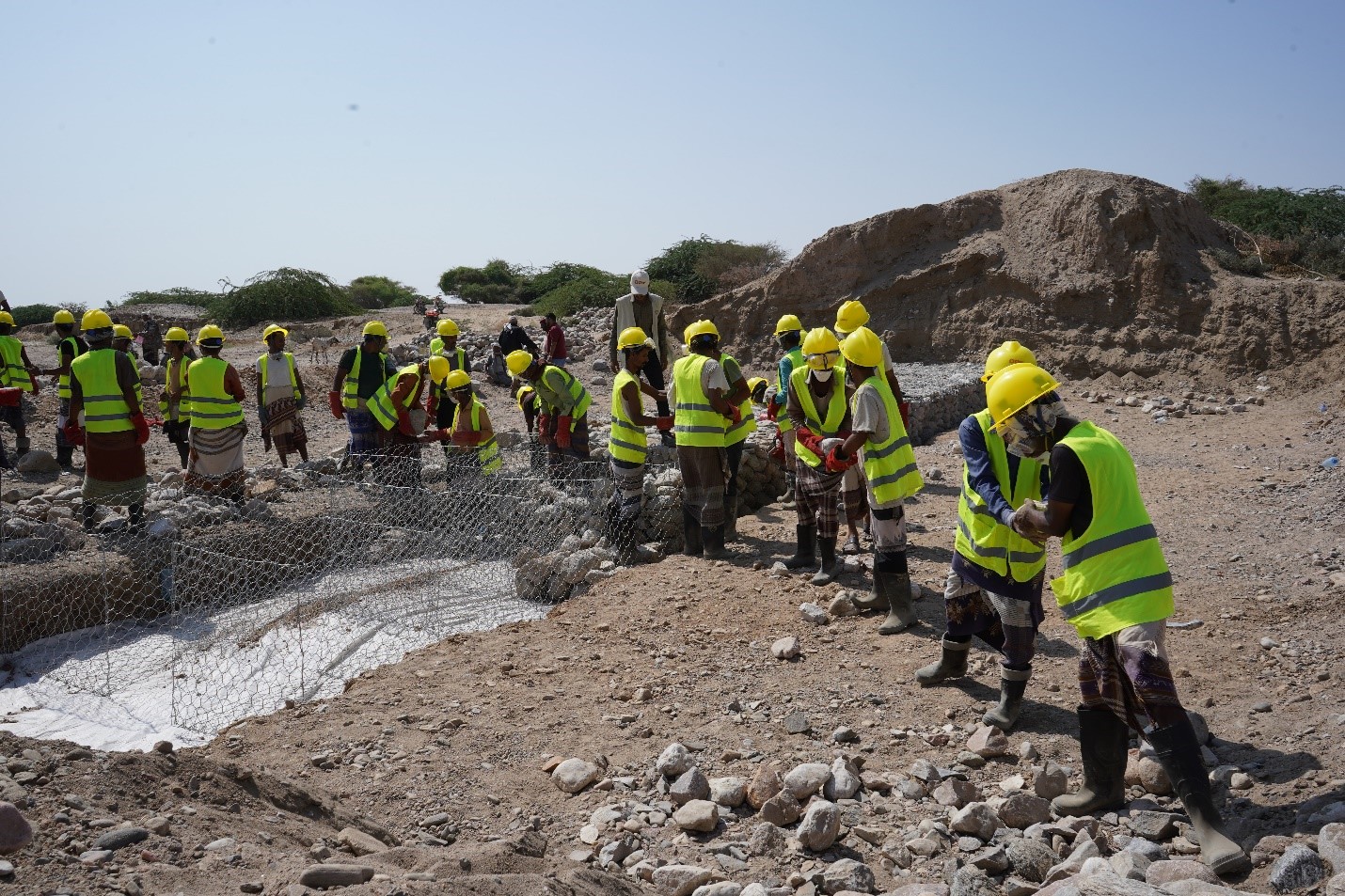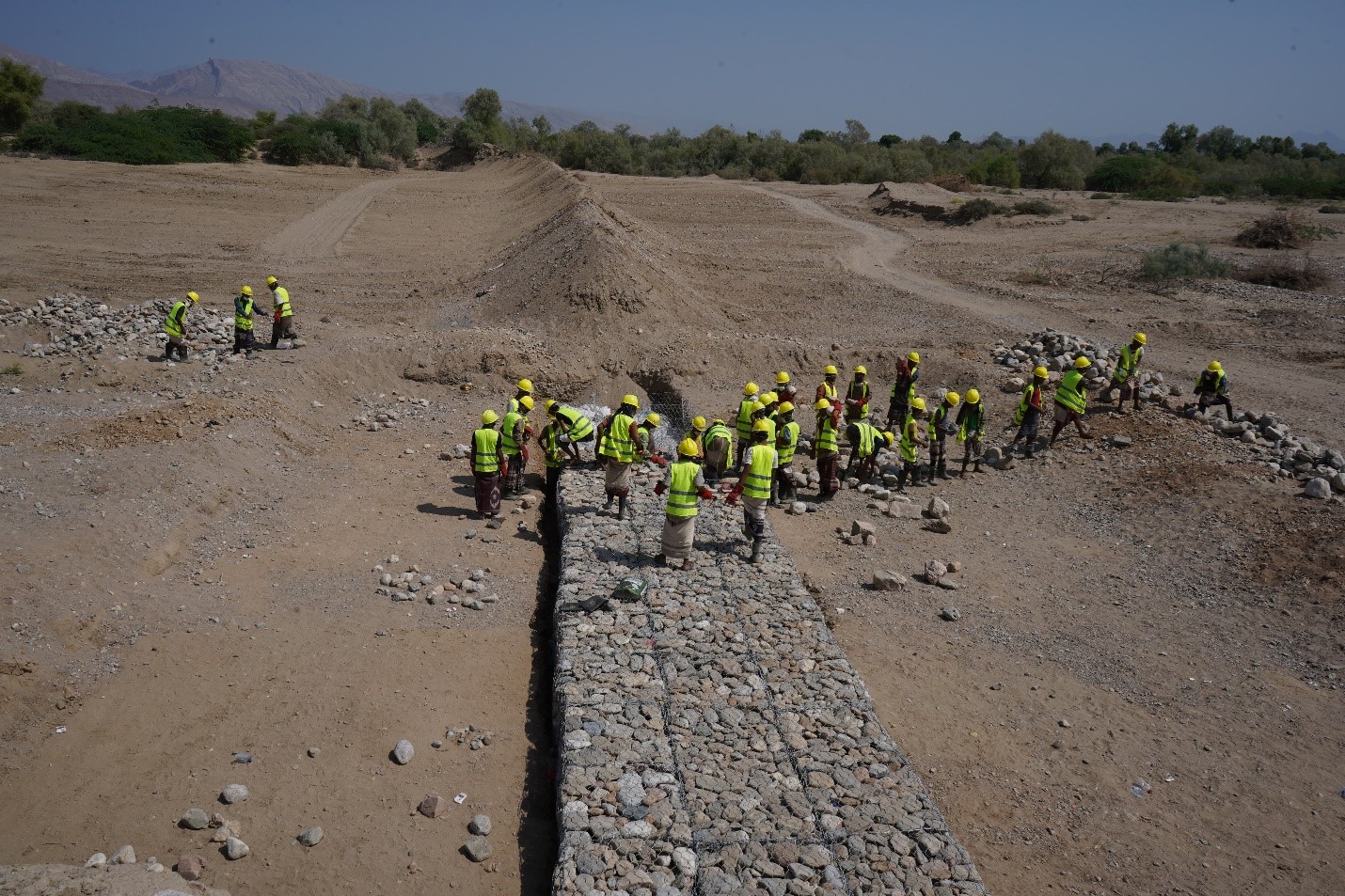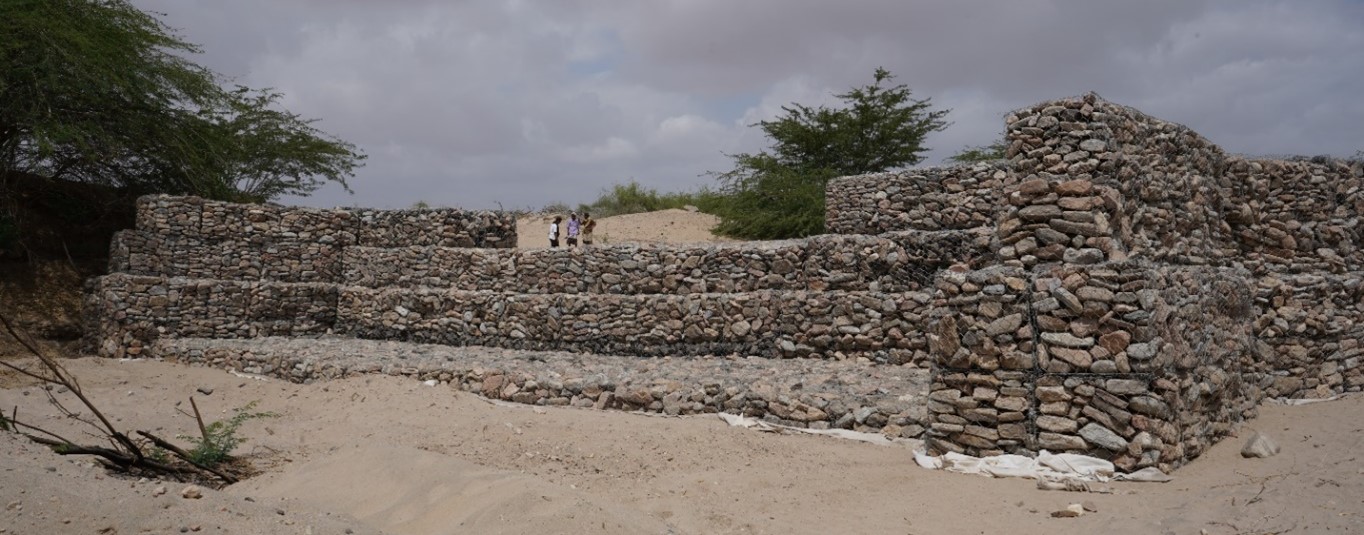In Ahwar District of Abyan Governorate, southern Yemen, residents depend on agriculture as their main source of livelihood. Years of conflict and neglect of the irrigation system and dam infrastructure have led to a significant decline in agricultural activity in the area, forcing farmers to abandon their farms. In addition to significant climate change, agricultural production has been severely affected. Although farmers have made great efforts to protect their farms and improve their standard of living, their efforts are still insufficient due to their limited capacities.
“High food prices and water scarcity have meant that many farmers have left their farms in search of other sources of income,” says Munif Saleh, CARE’s Food Security and Livelihoods Field Engineer. “Farmers in the area couldn’t use rainwater to irrigate their land, and rainwater was often wasted due to the lack of proper irrigation infrastructure such as gabions. This led to the degradation of agricultural land, affecting farmers’ incomes and food security levels in the area. Gabions help harness rainwater and floodwater to irrigate farms and recharge groundwater,” he adds.
To address this challenge, CARE, with funding from the UK’s Foreign, Commonwealth & Development Office (FCDO), and in coordination with local authorities in the governorate, intervened in Ahwar District through its cash-for-work activities, which help residents build key community assets and earn much-needed income.




